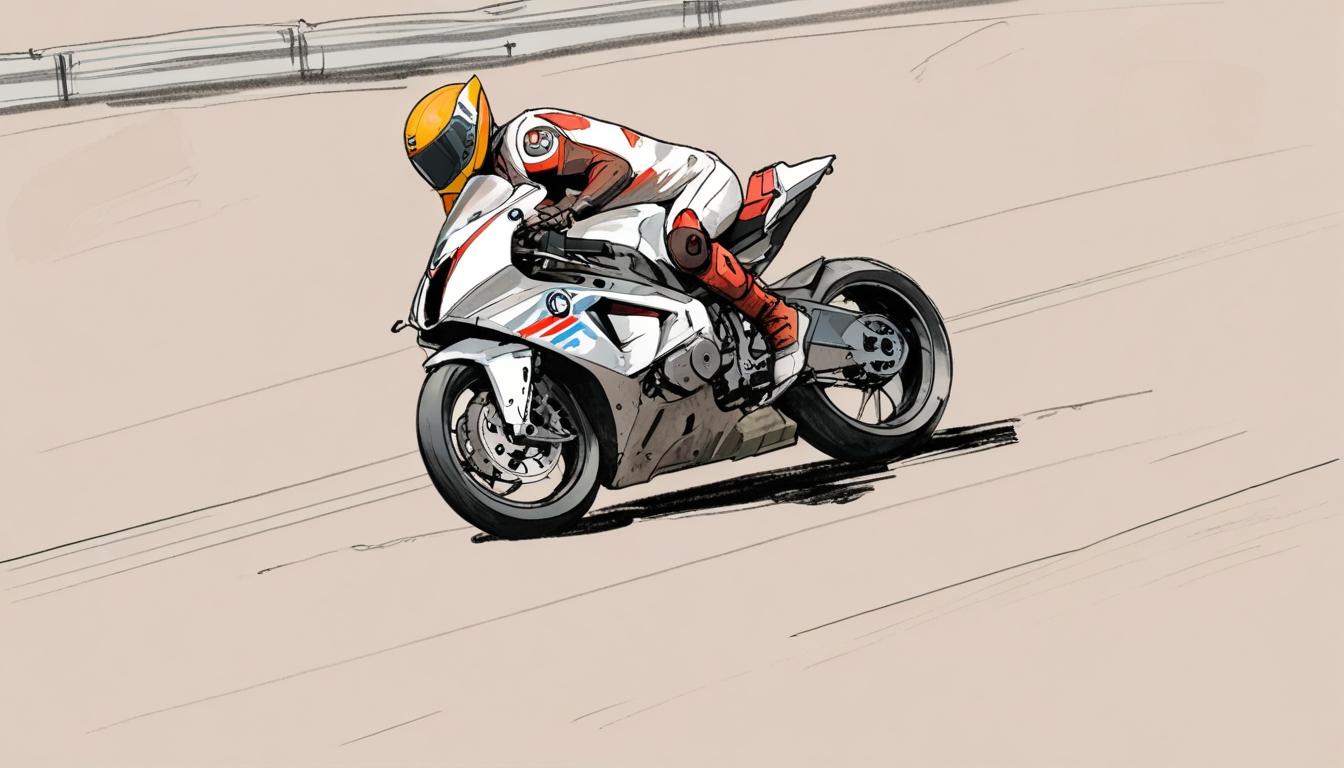This year’s Briggs Equipment North West 200 unfolded as a dramatic spectacle, showcasing both the thrill and turmoil that characterise motorcycle road racing. Among the most significant narratives emerging from this event is the announcement from renowned racer Peter Hickman, who declared that his recent participation would be his last at this historic venue. The exit of such an iconic figure leaves a palpable void in the racing community, underscoring both his impact on the sport and the contentious circumstances surrounding his departure.
Hickman's resentment towards the event's officials stems from a controversial ruling that saw his FHO Racing BMW team excluded from the Superstock race. The exclusion was primarily due to their BMW M1000RR machines being fitted with carbon-fibre wheels, which are explicitly banned according to the regulations set by the Motorcycle Union of Ireland (MCUI). This decision not only shocked Hickman but also ignited a broader discussion regarding the inconsistencies in racing regulations. In contrast, carbon-fibre wheels are permissible in the Isle of Man TT races, leading Hickman to suggest a convergence of rules between different events to prevent future mishaps.
The ramifications of this ruling have been profound, with analysts noting that it raises significant questions about regulatory coherence within the sport. The situation highlights the stark contrasts between the regulatory frameworks governing the North West 200 and other prominent events, such as the Isle of Man TT, where similar technical advancements may be embraced. The discordance has not only affected the competitive landscape but has also propelled teams and participants into frustration over the lack of clarity in regulations.
Following their exclusion, FHO Racing BMW opted to withdraw from the prestigious event, a move that has stirred debates within the community about fairness and the development of the sport. Their withdrawal serves as a focal point in discussions about the need for reformative action among racing governing bodies to ensure that all participants are competing under equitable conditions. Many industry insiders echo Hickman’s sentiments, advocating for a re-evaluation of how technicalities are managed to harmonise rules across various racing formats.
As the dust settles on this contentious chapter, the reflected experiences and sentiments of figures like Hickman reveal a sport at a crossroads, where tradition meets technological advancement. With Hickman's departure signalling a significant shift, the North West 200, along with the wider motorcycle racing community, will need to engage in a critical dialogue about its future. The hope is that lessons learned from this episode will prompt necessary changes to enhance the overall experience for competitors and fans alike, ensuring that the spirit of competition remains undiminished amid evolving technical standards.
In a sport that thrives on the edge of innovation and tradition, the clash of regulations may ultimately push stakeholders to advocate for a more unified approach. With Hickman's poignant departure, the racing community finds itself reflecting not only on a celebrated career but also on the pathways that will shape its future in a rapidly changing landscape.
Reference Map
Source: Noah Wire Services
